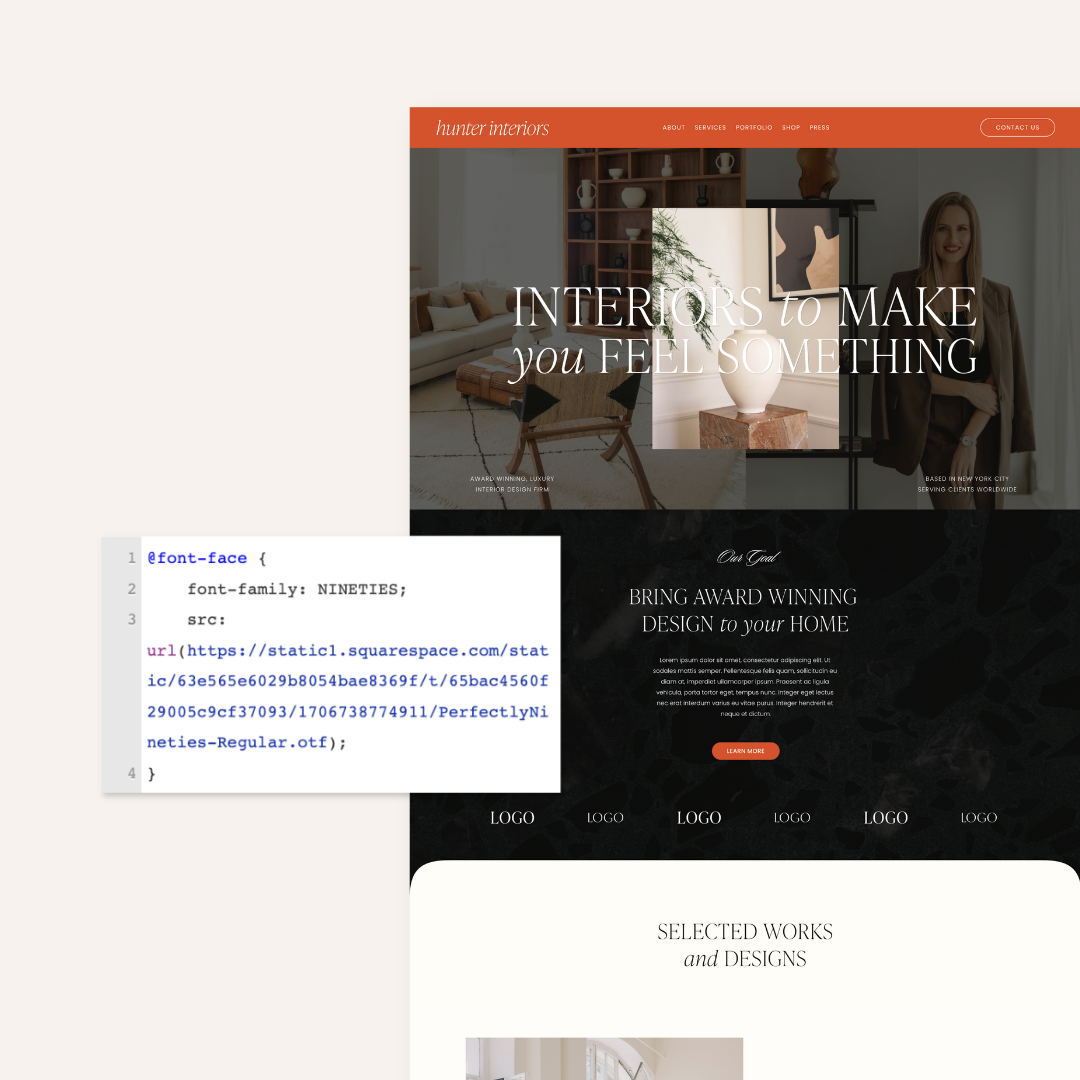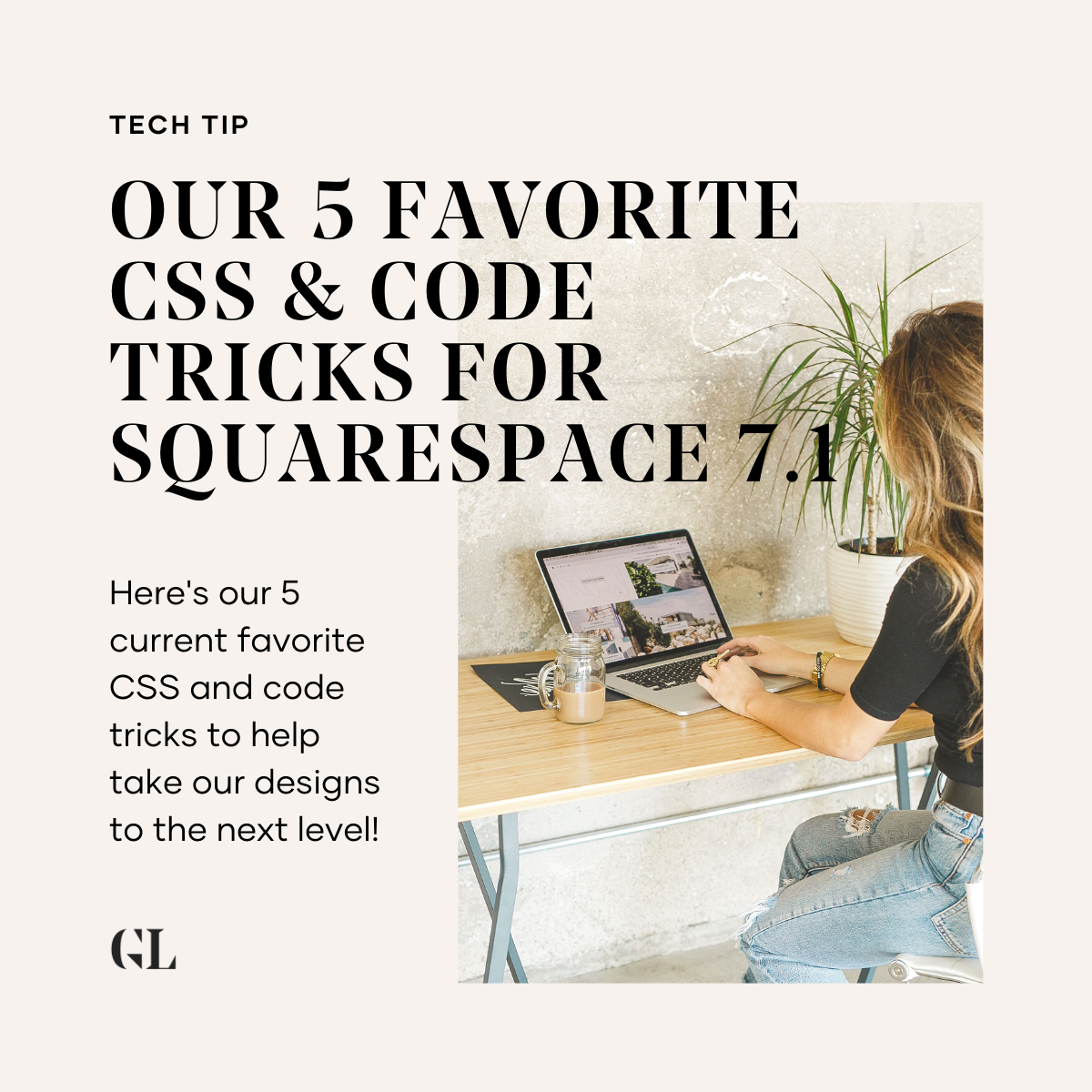5 Things to Consider Before Hiring a Website Designer
It’s no secret that we are firm believers in DIY websites. With the right tools, launching your website on your own can be a fun and surprisingly easy process.
BUT, there are also plenty of situations that call for a professional website designer to take the lead. Launching a website can be overwhelming at times. From the strategy behind the design to the design itself to the additional elements like copywriting, there is a lot that goes into building a website. And if you’re a busy entrepreneur with tons on your plate, it definitely makes your life easier knowing that your website is in the hands of an expert.
It’s a good idea to hire a website designer if…
You’ve been in business for a while and are in need of an updated website
You’re relaunching or rebranding your business
You’re looking for something super custom
You’ve taken the DIY approach and now you’re ready to level up
Before you can partner up with a website designer, there are a few things to consider and prepare for to ensure that the partnership goes smoothly and your website is primed to bring in new clients, leads, or customers.
5 Things to Consider Before Hiring a Website Designer
1. Determine The Goal Of The Website
Seems pretty obvious, but before you hire a website designer consider the overall goal of your new website. Why do you need a new website? Are you launching a brand new business or are you rebranding your current business? Or, maybe you’re not seeing the results you desire when it comes to marketing your services and converting website visitors. Your website is your brand’s number one marketing tool, so it should definitely be high priority on your list whether you’re launching a new business or taking your current one in a different direction.
When you’re getting a custom website, it helps your designer tailor your website to your business’s needs if they know the reason for the website design in the first place. Having this insight before they get started is essential, so it’s key to nail down your goal before reaching out.
2. Dive Into Your Target Audience
You’ve heard it countless times before, but we’re saying it again: know your audience. There are very few parts of your business that don’t revolve around your client or customer, and your website is absolutely no exception. You have to know your dream client before you design your website if you want your website to bring in results, AKA revenue. Your client or customer needs to see themselves on your website and understand the benefits your product or service brings to them. And design plays a critical role in shaping this.
Before you can partner with a website designer, you have to not only know your audience but be able to clearly communicate to the designer who your audience is. A website designer needs to understand who they are designing for and how it translates to your business and ultimately how your website can reflect that. The more details you can share with them, the better. Everything from demographics to pain points to behaviors is useful information and will inform the design.
If you’re still figuring out exactly who your ideal client or customer is, that is a good sign to DIY your website instead of hiring a designer.
3. Nail Down Your Offerings
If you’ve been in business for a while, you should already have a core set of offerings. But if you’re a new business and have yet to refine your services or products, you may need to set aside some time to nail down your offerings before you can work with a website designer.
Just like you need to know exactly who your audience is, you also need to have a clear idea of what your offerings are before you can partner with someone for your website. A website designer will need to know what your main offerings are so they can use that to inform the design — your offerings will influence everything from your service or product page to the navigation menu to the CTA buttons.
When you’re just starting out, you may still be trying to figure out exactly who your ideal client is or what they need. And that’s okay! Take time to figure those things out so you can make sure you’re giving your dream clients or customers exactly what they want.
4. Create A Punch List Of Things You Need Done On Your Site
Once there’s an understanding of the vision and goals you have for your new website, it’s time to get down to brass tacks. What *exactly* do you need done? Create a full scope for your potential website designer so that you’re both on the same page. If you’re not sure what to include in your list of must-have items, ask yourself a few questions:
What do I have coming up this year that’s new to my business?
What things are not currently working on my website?
What do I WISH I could do on my website in the future?
For example, maybe you’re a service-based entrepreneur and you’re going to start offering digital products on your site. In that case, you’ll need to make sure your website has an ecommerce feature so you can easily sell those products.
5. Create A Realistic Budget
You know the saying, “You get what you pay for”? This could not be more true than when it comes to website design. When you have the budget for a professional website designer, you’re investing in someone who understands that website design goes far beyond colors and fonts. In fact, good website design is more about strategy than it is aesthetics. Yes, we all want our websites to *look* good, but if they don’t also function in a way that leads to more customers or bookings, then something’s not working.
Before you hire a professional website designer, try to get an estimate of what it costs and determine if you have the budget. While professional custom websites aren’t cheap, they’re definitely an investment and can prove to have a strong ROI — this is something to keep in mind when running the numbers.
If a website designer is not currently in the budget, whether that’s because you’re launching for the first time or you’re still in the early stages of your business, consider taking the DIY approach. With the right tools (like our easy-to-use Squarespace website templates), it’s totally doable to launch a website on your own at a lower cost until you’re ready to bring in a professional.
The Wrap Up
Your website is your business’s biggest marketing tool, so it only makes sense to consider all of these factors that come along with hiring a website designer. While designing your own website is a totally doable option for entrepreneurs who are just starting out, hiring an expert to design a custom website is a strategic move for those who are ready to grow their business and elevate their brand.







